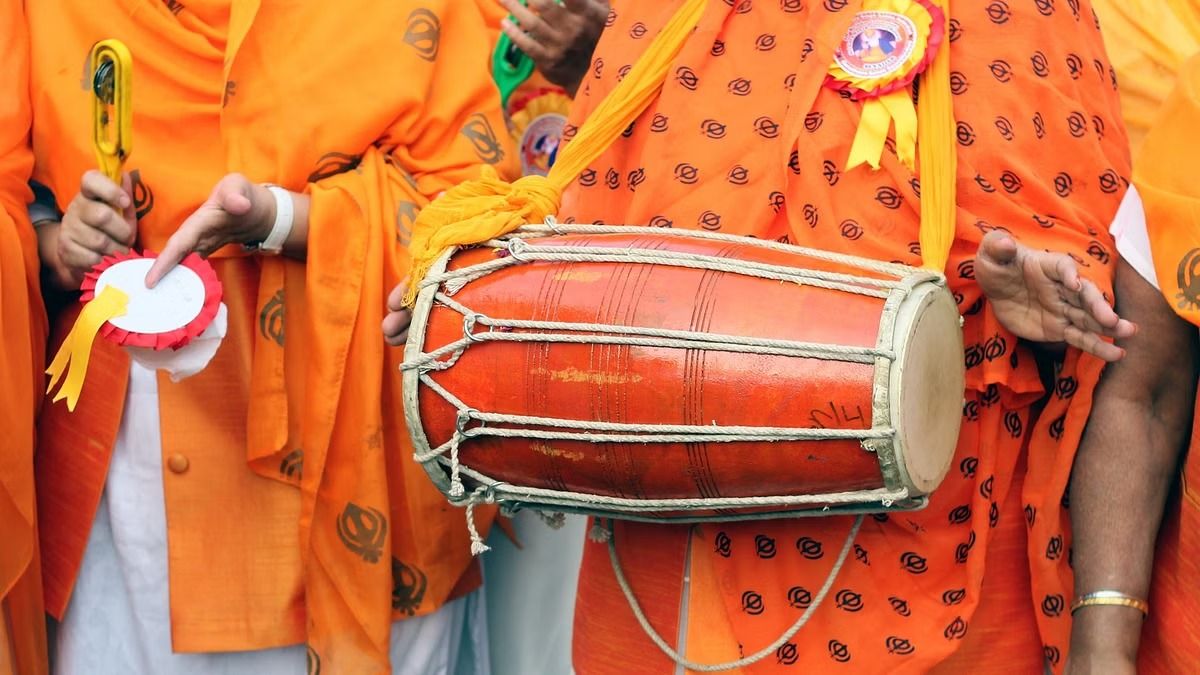London: For the first time in the UK, kirtan is recognised as part of the graded music examination system, with students able to access a formal curriculum and texts for “Sikh Sacred Music” starting Friday.
Birmingham-based musician and academic Harjinder Lallie has devoted years towards kirtan taking its rightful place alongside Western classical music and ensuring the traditional musical skills are preserved for generations to come.
Kirtan, the singing of shabads or scriptures from the holy ‘Guru Granth Sahib’, is a fundamental method of devotion and praise in the Sikh faith.
London-based Music Teachers’ Board (MTB) will now offer Sikh Sacred Music as part of its globally recognised eight-grade music exams, providing students the opportunity to earn Universities and Colleges Admissions Service (UCAS) points for the higher Grades 6-8 which are then recognised for university admissions.
“Our goal throughout all this is to ensure that we preserve our heritage for generations to come,” said Dr Lallie, a teacher at the Gurmat Sangeet Academy in the UK.
“It’s taken 10 hard years of work to get the curriculum accepted and launched. It is deeply humbling but still fills me with pride that all that hard work has now paid off. That a Western audience is paying a lot of attention to what we have done and, most importantly, can appreciate that Sikh kirtan is no less than say the violin, piano or any other Western contemporary music genre,” he said.
The Sikh Sacred Music curriculum comes alongside recognition of five Indian string instruments – dilruba, taus, esraj, sarangi and saranda.
As Lallie explains, almost 550 years ago kirtan was performed on tanti saaz or with stringed instruments. Over time, particularly in the last 150 years, stringed instruments became replaced by the harmonium.
“We lost a lot of our heritage during this time. In the last 25 years, there has been a huge drive pioneered by groups such as the Gurmat Sangeet Academy in the UK to bring back traditional instruments. This examination system requires the candidate to do kirtan on traditional stringed instruments and not the harmonium. By doing this, we will be encouraging more children to connect back with their roots and heritage,” said Lallie.
The MTB’s development of the new exam has been in collaboration with a South Asian Music Committee, made up of representatives and organisations who are at the forefront of Sikh Sacred Music tuition around the world.
“It’s really nice to see that the people that learn Sikh Sacred Music will now be actually recognised for their hard work and receive qualifications for what they’re learning; just like people learning other musical instruments like the piano, violin or guitar,” said David Kesel, Managing Director of MTB.
For the exam board, which has been pioneering innovation and digital technologies in musical exams, this project is an important step in a wider mission to culturally diversify music education to celebrate the musical traditions across all cultures.
Kesel explained: “As one of the main UK exam boards with schools, teachers and learners using us across 50 different countries, including India, a big part of our mission is to diversify music and we’re doing lots of cutting-edge things in trying to promote musical diversity and learning.
“It’s been quite focused on Western classical and contemporary music, which has been offered all around the world and so we’re the first board that’s also launched Bollywood and Indian pop music books, creating an Indian syllabus with Indian content.” Kirtan is a fundamental part of Sikh identity, and having the recognition for ‘Sikh Sacred Music’ as an exam subject with UCAS points is to be much celebrated, said Jasvir Singh, Chair of the City Sikhs community group in the UK.
“It gives that form of spiritual music the academic worth that it rightly deserves in the UK. I hope it will lead to more British Sikhs exploring their heritage with pride, as well as helping them get the results they need to get into further education and beyond,” he said.
The launch of this new musical qualification is only the start, with an accredited tabla exam in the works by early next year and the sitar, sarod and other traditional South Asian music instruments to follow thereafter.
In UK’s First, Kirtan Recognised by Music Exam Board as ‘Sikh Sacred Music’ world-news World News | Latest International News | Global World News | World News Today




